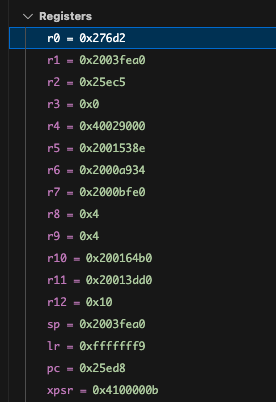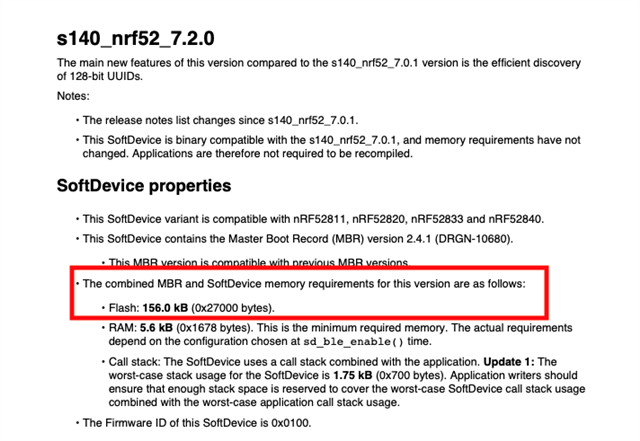Hi, I recently noticed crashing in sd_clock_hfclk_is_running() on a nrf52840 using SoftDevice S140 7.3.0. This is the callstack:
??@0x00000ac4 (Unknown Source:0)
<signal handler called>@0xffffffe9 (Unknown Source:0)
sd_clock_hfclk_is_running@0x000276ae (.../nRF5_SDK_17.1.0_ddde560/components/softdevice/s140/headers/nrf_soc.h:720)
I'm using the following to enable the hfclk whenever I enable QSPI to avoid errata 244:
sd_clock_hfclk_request();
uint32_t isHfclkRunning = 0;do {APP_ERROR_CHECK(sd_clock_hfclk_is_running(&isHfclkRunning));} while (!isHfclkRunning);




